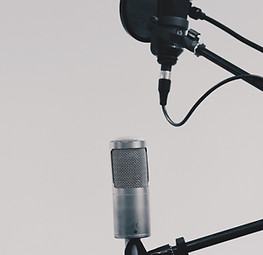
METHODOLOGY:
ORAL HISTORIES ARE...
-
a longstanding tradition of information collection about individuals, social groups, and major events through spoken testimony. Oral histories are a way to preserve the past in the absence of and/or in conjunction with written histories
-
a research method that relies on personal interviews as the primary source of information
What is Oral History?
ORAL HISTORY AS RESEARCH METHOD
Framing the role of Oral History
In contrast to traditional forms of research, oral history prioritizes subjectivity and diversion from concrete "fact," as well as changes in meaning over time. Oral historians see dialogue as the basis of all human relationships and positions witnesses to trauma and major events as storytellers. Oral histories provide a historical record, based in community, on the successes and failures — what worked versus did not work — in response to disaster. When facing traumatic events that can drastically alter our sense of meaning and purpose, such dialogue can also be a helpful medium to allow participants to grieve and rebuild new meanings.
Questions of interest
-
How do people make sense and meaning of events?
-
How do identities and belief systems stay the same or change over time?
-
How do narratives change based on the audience (e.g. to kids vs. friends)?
-
How do major events in the past shape how people think about the future?
-
Who do people trust (individuals, institutions, groups, etc.)?
-
How do people manage their grief and anxiety in the midst of catastrophe? (Idea is to be transparent about the moment that we are experiencing)
For oral historians—the second witnesses to historic and traumatic events—the challenge is to use the innately supportive and professional context of oral history to facilitate the active process of remembrance. While we had many intellectual reasons for documenting the histories we did, we also acknowledged that our work was commemorative in nature.
Mary Marshall Clark, Director of the Columbia Center for Oral History Research,
in Field Notes on Catastrophe: Reflections on the September 11, 2001,
Oral History Memory and Narrative Project
ORAL HISTORY AND
THE COVID-19 PANDEMIC
A global reaction to the pandemic
In the context of the ongoing COVID-19 pandemic, countless oral history projects have sprung up around the world documenting people's individual and collective responses to the pandemic. On April 16, Columbia University's Oral History Master of Arts program hosted a public webinar called "oral history of disasters and pandemics," aimed at sharing resources and knowledge to help those documenting the pandemic through oral history.
The resources shared in this webinar include readings on oral history methodology, links to the recordings of other webinars, and a list of some ongoing oral history projects documenting COVID-19 around the world.
They can be accessed here:
https://docs.google.com/document/d/1JhVCj1Vvc1hHsioMpna_0DITmY7Ad4Kv6ZrUojapVgI/edit#
These resources honed our discussions on how oral history can be used as a research method. We also used the list of ongoing COVID-19 oral history projects to frame our project in the context of larger documentation efforts.

